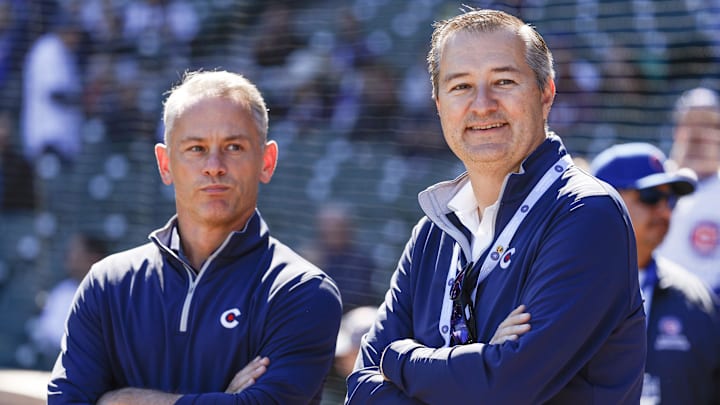Current Player Retention
When asked whether he and the Cubs had any discussions of a contract extension that would allow him to make more than the $4 million dollar arbitration salary he’s due in 2024, Cy Young runner-up Justin Steele simply said “no.”
Everyone applauded when the Cubs wisely refused to re-sign Willson Contreras. He was expensive and a defensive liability. Everyone laughed when Contreras was removed as catcher for a brief stint by the Cardinals and made to be an expensive designated hitter for about a week. However, Contreras got the last laugh as he accounted for 3.4 WAR according to baseball reference and the Cubs combination of Yan Gomes, Miguel Amaya and Tucker Barnhart combined for 1.0 WAR.
Production costs money. It's as simple as that and the Cubs, for whatever reason, don't appear willing to accept that.
It's bad enough that insiders recently picked 18 players likely to sign a long-term extension with their club and there wasn't a single Chicago Cub on the list. Not Justin Steele, not Christopher Morel who just finished his age-24 season and improved his slash-line in all three categories as well as nearly doubling his homer output, and not the Cubs top prospect, Pete Crow-Armstrong. People across the industry know, the Cubs don't re-sign their players.
Chicago is the third largest media market in the country and have a bigger gap between their cross-city rivals in valuation than the other two largest markets (Yankees to Mets and Dodgers to Angels).
The Chicago Cubs are the 4th most valuable team in Major League Baseball according to Forbes.
The value of the team has increased steadily (even through COVID) from $700 million when the Ricketts family bought the team in 2009, to $1.2 billion in 2014, to $4.1 billion based on last year’s data.
So the question has to become:
